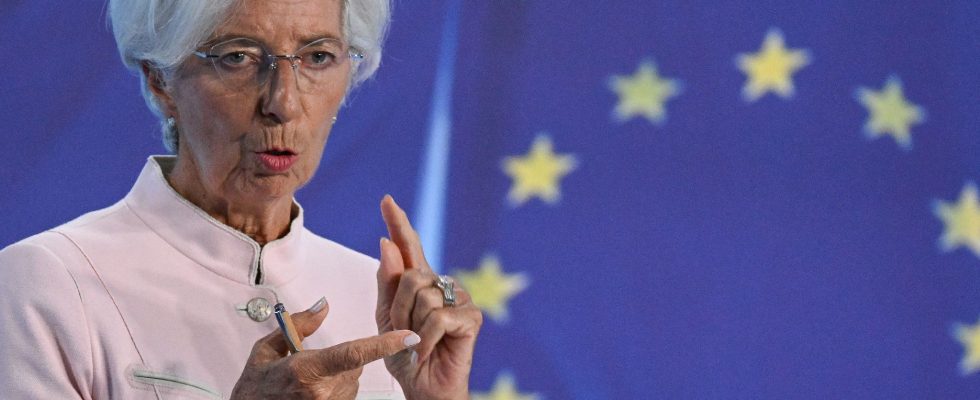This new increase is debated. The European Central Bank (ECB) raised its reference interest rate this Thursday, September 14, to its highest level since 1999, defying those who called for a truce so as not to worsen the slowdown in economic activity in the region. euro. The increase of 0.25 percentage points brings the deposit rate of bank liquidity at the ECB, which refers, at 4%, to the highest since the creation of the monetary institute in 1999.
After this tenth increase in a row since July 2022, the institution estimated that rates have reached levels which will make “a substantial contribution” to the desired drop in inflation. She added that the institution’s next decision on the matter will depend on economic “data”. To bring prices down effectively, rates will need to be maintained at their levels “for a sufficiently long period of time”, warned the Governing Council at the end of its meeting.
Inflation forecast rising, growth falling
The ECB has chosen to stay the course, fourteen months after launching the fastest and most extensive rate hike cycle in its history. A decision that she justifies by asserting that “if inflation continues to slow, it should always remain too high for too long a period”. The monetary institution also raised its inflation forecasts for 2023 and 2024 this Thursday, due to the impact of energy prices. It now forecasts an increase of 5.6% in 2023, then 3.2% in 2024 and 2.1% in 2025, getting closer to its medium-term objective of 2%.
The monetary tightening of recent months has led to a surge in borrowing costs for households and businesses, influencing demand and therefore the distribution of credit. Once limited to the manufacturing sector, the slowdown gradually spread to the services sector. The ECB has thus lowered its growth forecasts in the euro zone until 2025. This should only reach 0.7% in 2023, compared to 0.9% previously expected, then 1.0% in 2024 and 1.5 % in 2025. “We are clearly in a period of slow and sluggish growth,” commented Christine Lagarde.
Debate on economic strategy
This dilemma between inflation and growth has given rise to an intense debate between euro zone central bankers in recent weeks. The tenth rate increase in a row was, however, decided by “a solid majority” of the Governing Council, even if some members would have “preferred a pause”, admitted the central banker. Faced with inflation considered stubborn, the risk of not doing enough appeared higher than the risk of doing too much, as insisted by the “hawks” who have dominated the debate at the ECB council for over a year. .
The aim of this historic increase in rates is to continue to slow down economic activity so that companies and businesses stop raising prices, and so that their employees moderate wage demands, which tend to fuel inflation. “The fear of not fully controlling inflation and the risk of stopping too soon must have been a greater concern than the growing risk of recession in the euro zone,” commented Carsten Brzeski, of the ING bank, after decision. For him, this new announcement nevertheless constitutes “the final increase” in the monetary tightening cycle.
